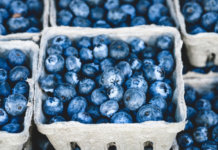The Bayer-Monsanto merger has formally been announced last week. If made official, it will create one of the world’s largest agro-chemical companies. Since that time, officials, activists, farmers, the media, consumers and executives have put in their two cents on this $66 billion deal.
The executives: the best of both worlds
Both Monsanto and Bayer’s CEOs, Hugh Grant and Werner Baumann, respectively, have praised the Bayer-Monsanto merger, saying it will provide the best of both worlds. “Bayer’s crop protection portfolio with our world-class seeds and trades,” says Grant. In addition, they emphasize the altruistic nature of their deal, which will improve the “lives of growers and consumers around the world.”
The officials: skepticism from both U.S. and German lawmakers
Several U.S. and German lawmakers have spoken out against the merger. Just recently, a debate at the German parliament called by the opposition Green party emphasized the imbalance between the citizen’s values and merging trends in the German food market and Monsanto. The company is a champion in the GMO and weed killer industry, responsible for the herbicide Round-Up. The main ingredient, glyphosate, has been linked to cancer by the WHO.
“More than 70 percent of Germans say they don’t want genetically-modified food on their plates, but that’s exactly part of the strategy of this merger,” said Katharina Droege, a legislator from the Greens.
In addition, two former justice department officials called the deal a “five-alarm threat to our food supply and to farmers around the world.”
Unfortunately, lawmakers have no control over whether the deal will go through or not.
Advocacy groups: “a marriage made in hell”
Upon the first announcement of a potential Bayer-Monsanto merger back in May, the Organic Consumers Association called it a “marriage made in hell”.
This one may have hit the nail on the head.

While executives are emphasizing the benefits of this deal (for everyone else but themselves, of course) we should all stop and think about the histories of both companies.
Bayer was formed back in 1863. It was made famous when they introduced heroin as a cough remedy in 1896 and aspirin in 1899. Then, as part of I.G. Farben, they produced the poison gas used in Nazi concentration camps. More recently they sold HIV-infected drugs to the parents of hemophiliacs in foreign countries. This caused thousands of children to die of AIDS.
Monsanto was formed in 1901, originally making food additives before it expanded into industrial chemicals, pharmaceuticals and agriculture products. It’s introduced some really great stuff like polychlorinated biphenyls. This is now a banned toxic chemical known as PCBs and the herbicide Agent Orange used during the Vietnam War. More recently, they’ve come to spotlight for developing the herbicide Round Up (responsible for glyphosate). In addition, they are the pioneer of genetically modified corn and soybean seeds.









